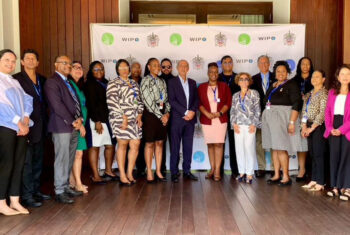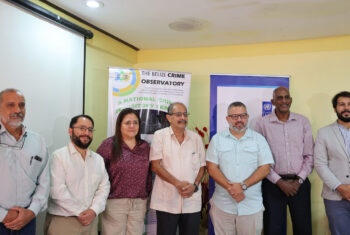Belmopan. February 6, 2019. As commitment to the host country agreement, the Government of Belize allocates, from general revenue funds, sum of $500,000.00 per annum to support the hosting and administrative functions of the secretariat. The hosting of SIDS DOCK in Belize is an honor and a strategic move to be part of the discussion surrounding sustainable energy and open opportunities to access funding. Belize is now the proud host of two regional/international organizations, SIDS DOCK and the CCCCC, aimed at promoting sustainable development and combating climate change. These hosting agreements re enforces the confidence other countries have in Belize leading the path to a better tomorrow.
SIDS DOCK is an institutional mechanism established to facilitate the development of a sustainable energy economy within the small island developing states. SIDS DOCK held its inaugural National Coordinators Meeting on July 27-28, 2011 at UN Headquarters in New York.
A treaty establishing the Small Island Developing States (SIDS) Sustainable Energy and Climate Resilience Initiative – SIDS DOCK – entered into force on 30 September 2015, with a ceremony at UN Headquarters featuring the official handover of instruments of ratification by the first 11 contracting Parties: Bahamas, Barbados, Belize, the Cook Islands, Dominica, Grenada, Saint Kitts and Nevis, Saint Vincent and the Grenadines, Samoa, Seychelles and Tuvalu.
Belize is the SIDS DOCK Host County, and the Belize-based Caribbean Community (CARICOM) Climate Change Centre (CCCCC/5Cs) is the designated Interim SIDS DOCK Secretariat. The host country agreement was signed in September 2017.
The ultimate goal of SIDS DOCK is to increase energy efficiency by 25 percent (2005 baseline) and to generate a minimum of 50 percent of electric power from renewable sources and a 20-30 percent decrease in conventional transportation fuel use by 2033,
SIDS DOCK has four principal functions:
1. Assisting SIDS with developing a sustainable energy sector, increasing energy efficiency and development of renewable energy resources;
2. Providing a vehicle for mobilizing financial and technical resources to catalyze clean economic growth;
3. Provide SIDS with a mechanism for connecting with the global carbon market and taking advantage of the resource transfer possibilities that will be afforded; and
4. A mechanism to help SIDS generate the financial resources to invest in climate change adaptation.
Ends


